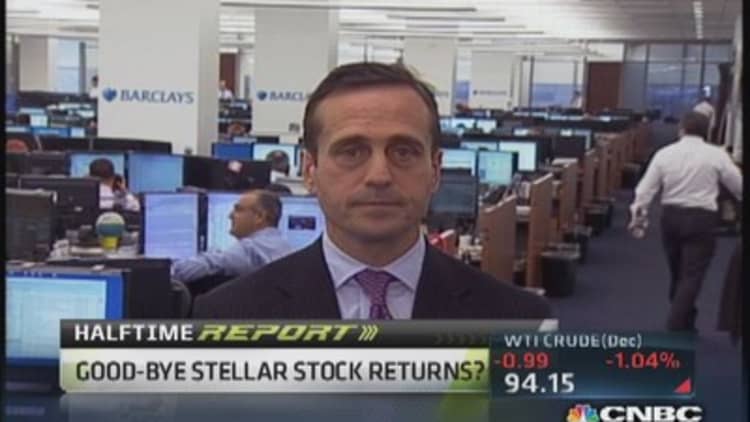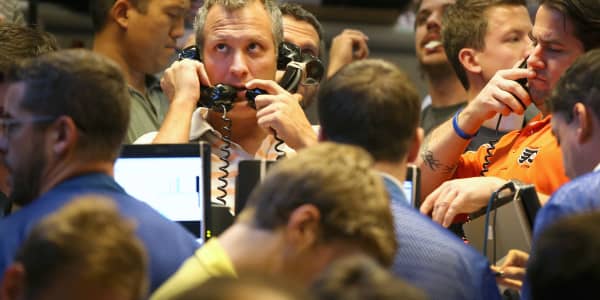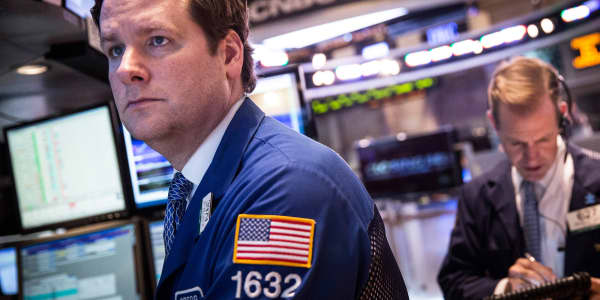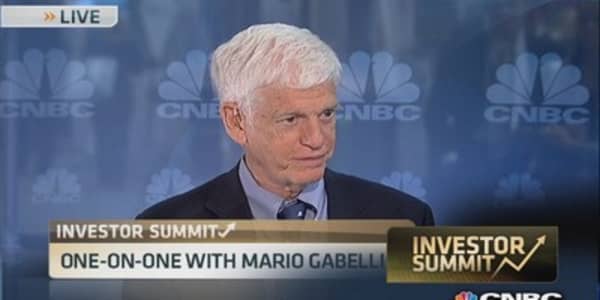If Omar Aguilar is right, a paradigm shift is about to occur in investing.
If there's been one constant in the post-financial crisis stock market boom, it's that companies that returned money to investors through share buybacks and dividends have been rewarded, while those that have put cash toward capital expenditures and hiring have been punished.
But Aguilar, chief investment officer for equities at Charles Schwab, said that could dissipate in 2014 as companies stop cutting to the bone and start looking for ways to grow.
"We're going to start seeing those companies that will be more aggressive in capex. That should be the natural cycle," Aguilar said during an interview at the Schwab IMPACT 2013 conference. "So far investors seem to be rewarding companies that are more conservative. As we go into next year, that's going to change."
(Read more: What worries Schwab's top investing pro)

Since the bull market began, companies have repurchased more than $1 trillion of their own shares, helping to reduce float and boost the S&P 500 by 160 percent. In the second quarter of 2013 alone, companies repurchased $118 billion, compared with $24.2 billion in the second quarter of 2009 just before the market began its huge comeback, according to S&P Capital IQ.
Dividends have increased more than $150 billion during the same period.
At the same time, capital expenditures have lagged and employment growth has been slow, with a decrease from 10 percent to 7.3 percent in the unemployment rate coming in good part due to a reduction in labor force.
Aguilar sees a reckoning coming from corporate America, which will have to realize that investors will begin demanding growth as multiple expansion slows and top-line revenue goes flat.
"The biggest headwind we face is lack of growth. That is definitely the biggest challenge we're going to face next year," he said. "Without top-line (revenue) growth it's going to be very hard for us to maintain the level of (stock market) growth."
(Read more: Think retail investor back? Think again: Schwab CEO)
He sees two other obstacles: The continuing political drama in Washington, which he's hopeful learned a hard lesson from the debt ceiling drama of 2013, and valuations, which he thinks will become stretched.
"The more we go up the closer we'll get to a correction," he said.
As for opportunities, Aguilar believes the U.S. will remain strong, and he's positive on financials in particular, as well as home builders and technology.
He's less enthusiastic about Latin America but believes the worst has passed for Europe, where he expects automakers and telecoms to do well.
(Read more: $3.5 trillion so far, and more buybacks coming)
Closer to home, he's constructive on the U.S. in general but wants to see increased confidence and some purse strings loosened both among investors and heads of corporations.
"The only risk now seems to be uncertainty about fiscal policy," Aguilar said. "People are concerned and they are not necessarily spending the capital they need to spend. CEOs and companies are still gun-shy about spending money in the current environment."
—By CNBC's Jeff Cox. Follow him on Twitter @JeffCoxCNBCcom.





